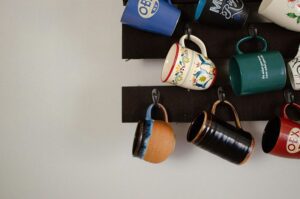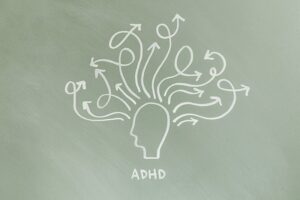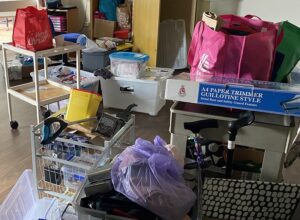
Consumerism and clutter go hand in hand. Aggressive marketing and a capitalist culture that celebrate stuff are difficult to ignore.
You see, being human is difficult. We have big complicated brains. Confucious said that “Life is really simple, but we insist on making it complicated.” (551 BCE)
Therefore we need coping strategies. Alcohol, gambling, gaming and drugs are unhelpful and potentially addictive stress responses.
Shopping is another.
Unfortunately, conspicuous consumption is environmentally damaging. Also it can be a very expensive hobby, and a messy one.
Consumerism and clutter – pros
They call it retail therapy for a reason. Studies have shown that acquiring new stuff releases dopamine, a hormone response which may date back to a time when life was harder. This ‘scarcity impulse’ is a survival mechanism, even though it doesn’t make much sense now with mass production, Kmart and Amazon. All you need is a credit card and an internet connection, and you get a hit of dopamine there and then, even before the postman delivers. Anticipation of the item is often just as rewarding as receipt of it.
Shopping can solve problems in your life. If you’re cold in winter you buy a coat and if chopping the vegetables is a chore, you get new knives. But a lot of our shopping is less functional than that. Advertising is powerful. Certain purchases might make you feel part of a tribe. And in a time of worldwide uncertainty purchasing is also a welcome distraction and a convenient mode of control. Click and check out and you have done something productive – what’s not to like?
Also just like a peacock’s feathers attract a mate, having stuff can be considered a modern-day evolutionary fitness marker.
Consumerism and clutter – cons
The thrill of novelty often wears off. Not so much if your purchase was a solution to a problem, because novelty was never a factor. The coat is still warm and the knives are still functional. But have you ever forgotten what you actually ordered? That’s a red flag that you don’t really need it. Or unboxed a package and felt underwhelmed? When not displayed in a model scenario online, these items can be a letdown.
Dopamine hits which are easily gained never last long. If you have ever done something big, you’ll know that a longer-lasting feeling of wellbeing comes from working for it. For example running a marathon, finishing a PhD or getting a well-earned promotion.
Yet like all addictive behaviours we are destined to repeat them to chase that rush. Cheap thrills appeal to our limbic brain.
Consumerism is expensive. Currently in Australia, the national debt accrues interest of $20.8 billion net. It has never been more expensive to buy property, and keeping up with the Jones’ makes home ownership even harder to achieve. Yet it makes sense to placate ourselves with affordable luxuries.
But then comes the clutter. One day you look around and realise you have too much stuff. It can be overwhelming and impact how you function at home. You waste time looking for things. You shuffle your stuff around, dusting it, stuffing it into crowded cupboards and trying to keep track of it mentally. The Endowment Effect makes decluttering difficult, so it can stick around a lot longer than necessary.
The impact of all this stuff on the environment is huge, due to the resources used for production and the landfill created when we no longer use it. There are also social justice issues associated with the means of production (slave labour).
Consumerism and clutter – how to avoid it
- Declutter and organise your home so you know what you already own. We can help with that.
- Stay away from shops and online retail. They are designed to make us spend. Find an alternative and less destructive coping mechanism, like reading, exercise or calling a friend.
- Unsubscribe and unfollow retail accounts to avoid temptation.
- Have a cooling off period. Give yourself a week before checking out of the shopping site. See how much your interest wanes. Maybe you have already obtained your domaine hit during the shopping research, and can avoid the final purchase.
- Do your shopping early in the day to avoid decision fatigue and impulsive behaviour.
- Make a budget with a goal in mind and stick to it.
- Buy second hand. You still get a dopamine hit even if the items aren’t new.
- Just say no. If you didn’t know you wanted it until you saw it, you probably don’t need it.
- Discard responsibly to minimise landfill while keeping clutter down.
- Do some work on your self image so you are less reliant on your stuff propping up your confidence. Read Status Anxiety about this very topic.
If you want to turn over a new leaf and need hands-on assistance, reach out and get in touch.






























